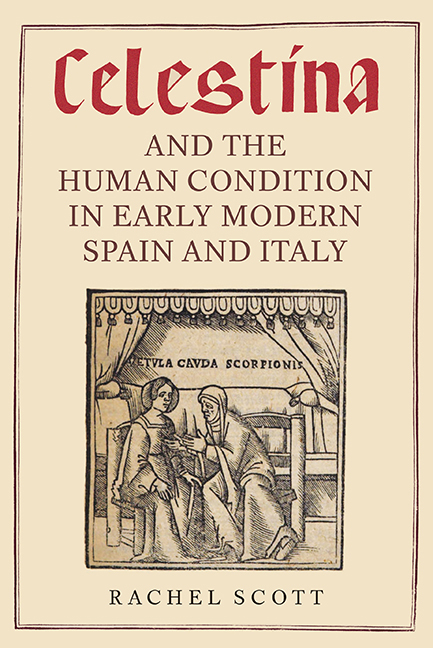Book contents
- Frontmatter
- Dedication
- Contents
- List of Illustrations
- Acknowledgements
- Note on Editions, Transcriptions, and Translations
- Introduction
- 1 Debating the Human Condition: Celestina's Interlocutors
- 2 Self-knowledge and Solitude: Diálogo de la dignidad del hombre
- 3 Fashioning Self and Society: Il Cortegiano
- 4 The Myth of Freedom: La vita delle puttane
- 5 Corrupting Women, Corrupting Words: Coloquio de las damas
- Afterword
- Bibliography
- Index
- Frontmatter
- Dedication
- Contents
- List of Illustrations
- Acknowledgements
- Note on Editions, Transcriptions, and Translations
- Introduction
- 1 Debating the Human Condition: Celestina's Interlocutors
- 2 Self-knowledge and Solitude: Diálogo de la dignidad del hombre
- 3 Fashioning Self and Society: Il Cortegiano
- 4 The Myth of Freedom: La vita delle puttane
- 5 Corrupting Women, Corrupting Words: Coloquio de las damas
- Afterword
- Bibliography
- Index
Summary
Meanings in Motion
This is a book about what books mean, and how these meanings change. It looks anew at Celestina by Fernando de Rojas, a canonical work of Spanish literature and one of the earliest ‘best-sellers’, with the aim of shedding light on its early modern reception. Thanks to the investigations of many eminent scholars we have a wealth of data on Celestina's print history that demonstrates its significant popularity and influence. Important as such facts are, however, they are not the whole story of Celestina's success. While we have clear evidence of its popularity, we have not adequately answered the question of precisely why it continued to hold such appeal for early modern audiences. Bibliographic approaches are of course fundamentally important. When taken as the sole index, however, empirical data provides a relatively limited perspective on the social dynamics of literary reception. Above and beyond the challenges faced by researchers of pre-modern literature (for example, a relative paucity of data and lack of systematic recording or preservation of manuscripts and printed editions, inventories of sales and ownership, and readers’ responses etc.), a comprehensive understanding of reception and the reasons for a particular work's success necessitates a contextualised and conceptualised approach.
Translation, printing, and reading are not abstract or ahistorical acts; rather they are determined by the socio-historical and ideological contexts in which texts are appropriated and engaged with. Such is the argument made by scholars of the history of the book, including Robert Darnton (1982), Roger Chartier (1989, 1994), and D. F. McKenzie (1999). In Bibliography and the Sociology of Texts, McKenzie suggests that:
any history of the book which excluded study of the social, economic, and political motivations of publishing, the reasons why texts were written and read as they were, why they were rewritten and redesigned, or allowed to die, would degenerate into a feebly digressive book list and never rise to a readable history. (1999: 13)
For this reason, the present study goes beyond data-driven interpretations of Celestina's textual transmission and the filiations between editions and translations. It is not concerned with the sources used by Rojas, or indeed authorial intention; nor does it trace the work's influence on later literature or analyse differences between Celestina and the continuations and adaptations it inspired.
- Type
- Chapter
- Information
- Publisher: Boydell & BrewerPrint publication year: 2017



